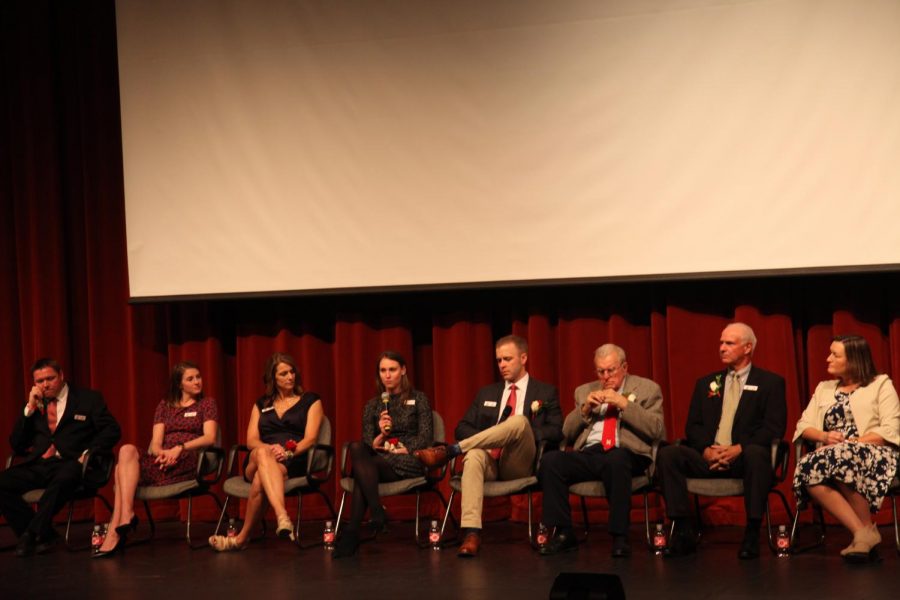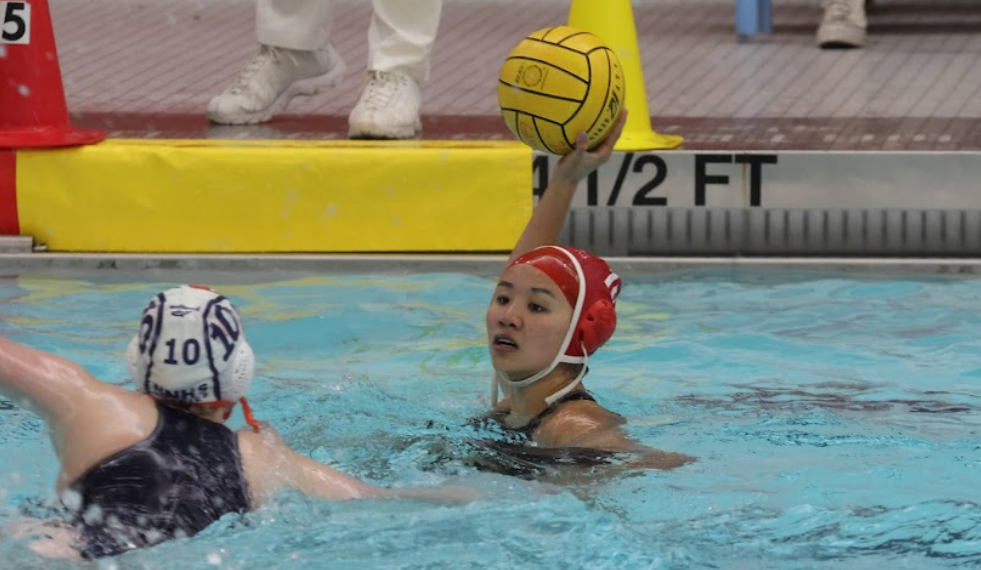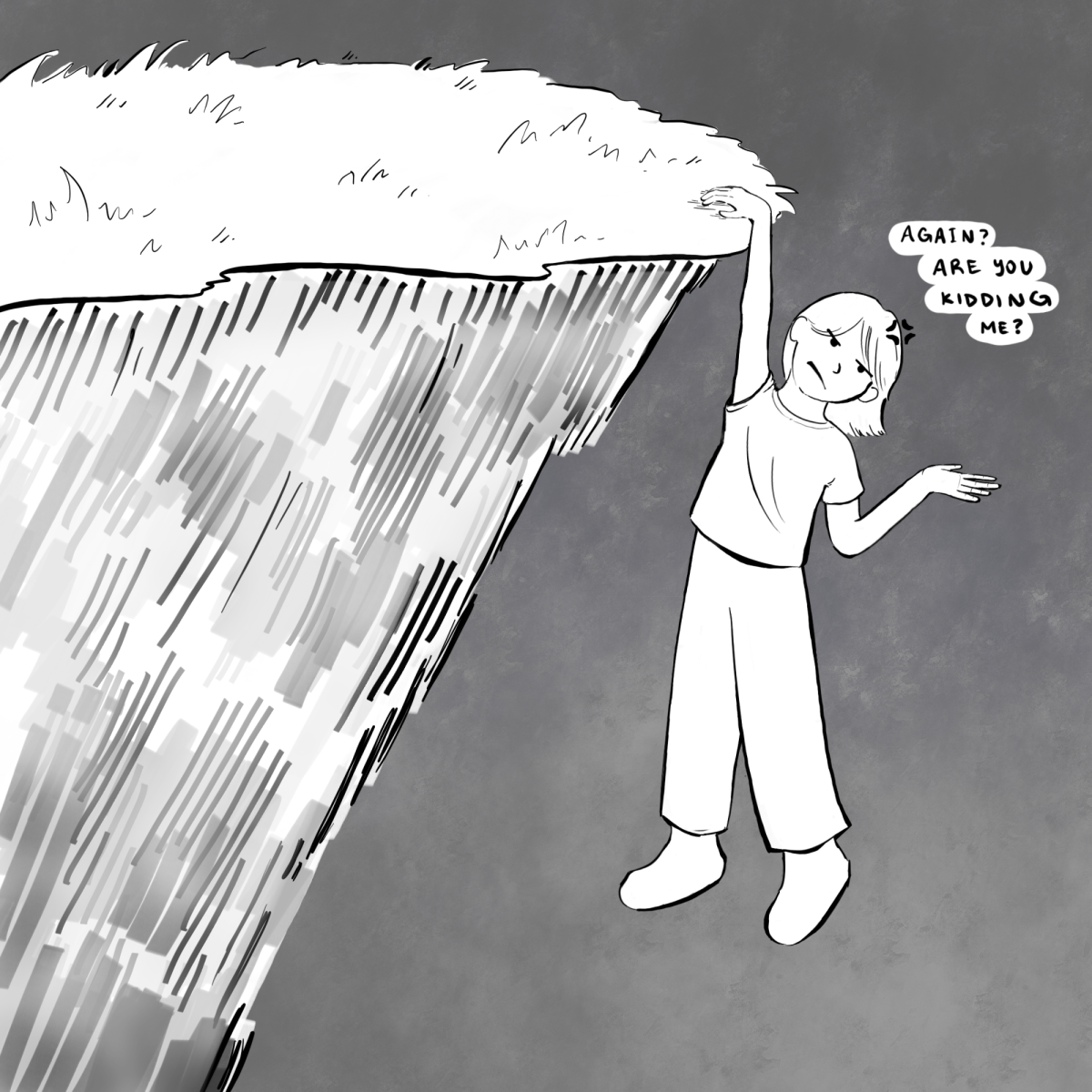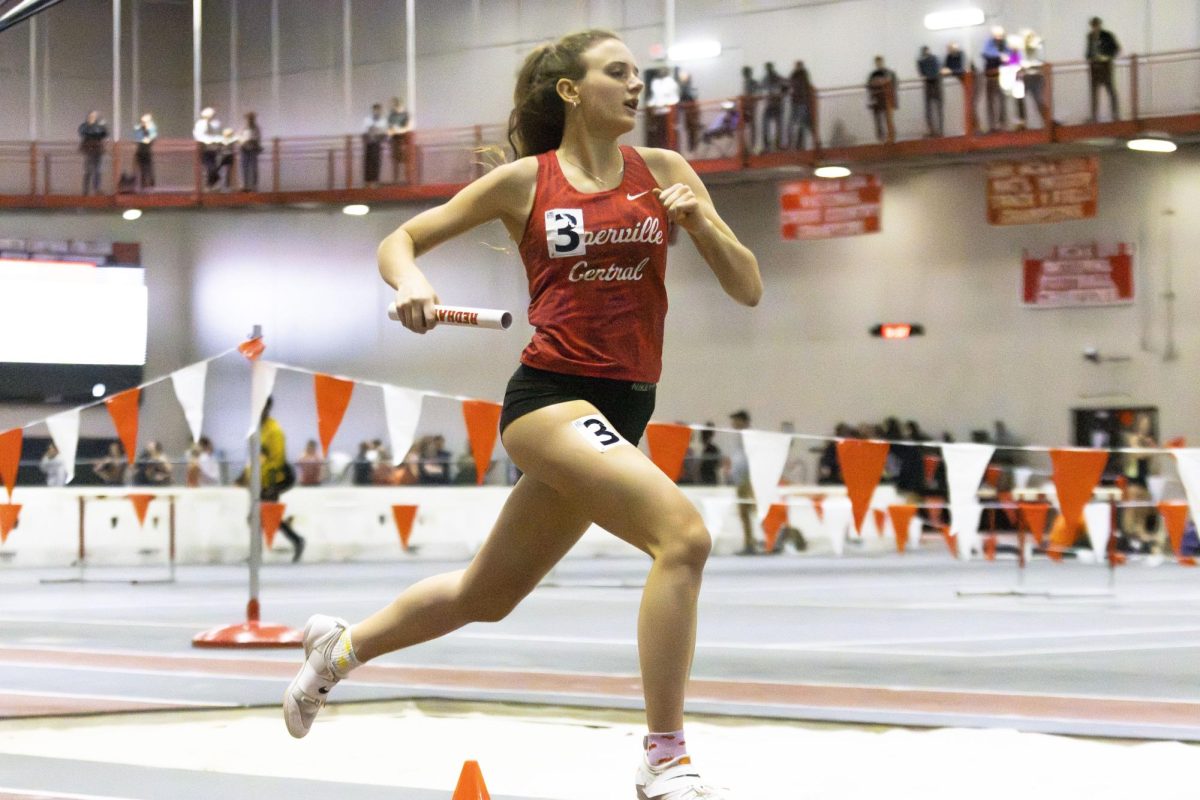Athletic Hall of Fame 2018: Meet the inductees
On Friday, Feb. 2, nine new members were inducted into the Naperville Central Athletic Hall of Fame. The Central Times talks to then about their experiences with athletics at Central and beyond.
February 3, 2018
Aaron Pembroke
Q: What are the highlights of your playing career at Naperville Central?
A: I mean, just the beginning of every day, practice, and just playing against your friends on a daily basis. In conference, we were ranked number 6 in the nation at one point, and that was amazing […] We were 14-0 ranked conference. […] But it’s just great, convening every day with your friends.
Q: What part of high school did you remember most that didn’t involve athletics?
A: Basically, following the schedule of the school, practice, eat, homework and go to bed. But I just enjoyed coming to school every day, and you get to be with your friends and people, and socialize every day, [during] study hall, lunch or whatever. And when that goes away, it kind of just goes away. […] But I did enjoy competing in the classroom and I tried to get the best grades that I [could], compete against that GPA, and I would [say] that freshman year established the GPA, and even college, it’s the same thing. If you establish that GPA as high as you can that first year, and you do that […] it sort of rides itself out.
Q: How was your transition from high school to college?
A: It takes the first year, I think, for a lot of people. After your first year, [you either] want to go home, maybe think of transferring or you’re trying to figure yourself out. I stuck it out, I stayed four years and after that first year, everything becomes normal, you’re away from home, and you could have great friends, that stay those four years. The transition was fine, I mean, that’s the good thing about being in sports. You already have that group of friends, that bond, people who’ll look out for you. So that’s what really helped me, and that’s the same [for] a lot of the athletes I know.
Q: Who would you consider your role model?
A: See, I’ve never put an athlete as a role model, I’ve never even really said my parents, but for the last eight years, with Obama, he’s somebody that I look up to. Just the way he handles his family, and the way he’s so articulate, it’s so impressive that I’d have to go with him. I don’t know. Something about that, it’s pretty cool. That guy, he’s pretty amazing.
Amy Korthauer
Q: What are the highlights of your playing career at Naperville Central?
A: I would say the best part, I liked, were all the competitions that we went to, because everyone was pulled together, and it was really fun. Whether it was the swimming and diving where all the swimmers pulled to the divers and the divers pulled to the swimmers, it was really fun to see. Just coming as a freshman, and coming from such an individual sport, it was great to have such team camaraderie. [When] your teammates are there to back you up, it’s really fun.
Q: What was your favorite sport to play in high school?
A: I would definitely say, in my life, that I had a lot more fun diving. Could be because I did it later, and didn’t do it as long in my life, but in high school, it was definitely gymnastics. [The] gymnastics team was just crazy close, and massive for a gymnastics team, and I just didn’t know that gymnastics could be that fun. That was one reason why I went to diving, it was because gymnastics had stopped being fun. But then, reaching out and doing it was really fun and enjoyable.
Q: How was your transition from high school to college?
A: It was surprisingly very easy. I think Central does a really good job of setting you up for success and I honestly think that some of my classes here at Central were harder than some of my college classes, and I think that was great, because it allowed me to struggle some there, but it allowed me to excel in other places, and it really made me feel like I belonged.
Q: What were the main differences between high school and college competitions?
A: I mean, the spirit of competition is there [in high school], but in college, people are more focused, since that’s the only [sport] they play. Well, for my sports we all competed at the same time because we had all different levels competing at the same time and in college, it’s very much more intense because everyone is there, that is their job, most of them are on scholarships, so they’re very serious about it.
Q: Who would you consider your role model?
A: In high school, it was a girl named Megan Martin. She was a senior and she was an interesting [multiple-]sport athlete because she did basketball and diving, which do not overlap at all, but she mad it work, she was fun and she had the best attitude of anyone I’ve ever seen. In college and now it would be Laura Wilkinson, she went to the Olympics and actually won a gold medal, and she is […] not a young diver, and she is training now for the next Olympics. She’s getting back into the sport, with her three kids, you see her training, and she looks amazing, and she’s very inspirational — somebody who hasn’t given up on her dream.
Cindi Schaff
Q: Who did you look up to as a student athlete?
A: I can’t think of one person. There were a lot of good athletes in my class, there were several good athletes in the class above […] when I was in school.
Q: What was the transition from high school to college athletics like?
A: It was very different, especially division 1, because they do own you. It’s a great honor to play, but your time and everything you do, they make the rules. It’s very different than being just a regular college student.
Q: What were some highlights of playing at Central?
A: The state golf tournaments were great. [I also enjoyed] the bus trips with softball. It was just great being a part of the teams.”
Q: What part of high school that didn’t involve athletics do you remember the most?
A: My favorite non-athletic activity would be prom. It was so much fun, we were getting ready to graduate.
Q: What advice would you give to your 17-year-old self?
A: If you want to play sports in college, it will probably be two percent of your life, so make it count, do your best and if you do go on to play somewhere, know that you have to be confident in what you’re doing.
Claire Fleming
Q: What was your favorite memory at Central?
A: The thing that stuck with me the most was the friendships that I made on all of my teams. There wasn’t a single team I was on at Naperville Central where everyone wasn’t included, and that was just incredible to see. No matter who the person was, what their background was, everybody’s a part of the one team and that was huge, and something that stuck with me my whole life. Some of my friends and teammates were with me at my wedding and at a lot of important days in my life. Take advantage of those friendships!
Q: Who was your role model as a student athlete?
A: I grew up watching the team with Candace Parker, Rachel Crissy and all of those amazing girls. My sister in law was actually on that team, too. That was really cool watching her play with all of those amazing basketball players, and it made me feel like I was a little more a part of it even though I wasn’t. It was cool to watch them compete and it made me want to set that goal of, I want to play sports at Naperville Central because it was so fun to watch.
Q: What advice would you give to current student athletes in regards to playing multiples sports?
A: Freshman year I played volleyball in addition to basketball and water polo, and it helped me to become a better leader because I was learning the sport, I was not very good at it, and it was a big challenge to me. It was hard to learn and a great life lesson. The rest of my career I played basketball and water polo and believe it or not those didn’t cross paths very often. I had two completely different sets of teammates which was very fun and let me meet a lot of new people and kept my athletic abilities versatile.”
Q: What’s the biggest difference between playing a sport in high school and playing in college? What would you say to students making that transition?
A: My college experience was club. Water polo isn’t as big in St. Louis where I ended up going to school, so I ended up teaching a lot more than actually playing water polo. It was hard, but cool watching these people to learn to play the sport and grow to love it. I made the choice between playing athletics in college and choosing my career. I wanted to go into nursing and I knew that it was possible yet very challenging to be an athlete and be in nursing school because of all the clinicals you have to do. I chose to play club water polo and get my career on track, and it was really fun!”
Q: Did you experience any injuries in high school? How did you overcome them?
A: It was either sophomore or junior year of basketball season and I had sprained my left ankle. I went to Hughs and said ‘Look, I’ve already missed three practices, I’ve been out for a week. I’m not willing to sit anymore.’ He taped it up and I’m not sure what he put on it but you could knock on it and it sounded like a hard cast. I completely stretched out my basketball shoes and they never fit the same again. I didn’t realize it was that bad until the day I got in the pool for my first day of water polo after the basketball season and I went to kick, and my left leg flopped in the water. It took a long time to build up those muscles, so another reason why it’s good to play more than one sport.”
Colin Bates
Q: Who is your role model?
A: My role model is my dad. He has taught me so much about integrity and humility, so I really try to emulate that.
Q: What was the main difference between high school and college athletics?
A: I think in college, every player is the best player, so the competition increases after high school. Also, in terms of school, the work gets harder and so does balancing school with practice.
Q: What was your favorite highlight from Central athletics?
A: It was definitely competing with your friends every day, the preparation that we put into the whole process. Practice would be in the gym 5:30 a.m. [because] badminton got it in the afternoon. All those mornings, those early mornings competing with one another and the preparation that eventually led to our state win.
Q: What was your favorite memory at Central?
A: I remember every game as if it were yesterday. My junior year, I remember making a significant error in the playoffs […] we lost that game in the playoffs. We had a really good team and I used that as motivation in the off-season.
Q: What is one thing you really enjoyed at Central other than athletics?
A: Being a bit of a nerd, I have to say I remember Mr. Braun’s calculus class, I actually enjoyed it. It was the hardest class I ever had, but I found that I could get two college credits for taking it and passing the test. I also enjoyed artwork. I painted a mural at the back of the dugout. It was torn down, which obviously speaks to the quality of it, but I enjoyed art.
Gary Winrow
Q: Who was your role model as a student athlete?
A: I had many [role models]. Rich Erickson was one of them, he played quarterback a couple years ahead of me, Rick White, who actually went to Wake Forest, was ahead of me and he was my role model. I had a number of role models, and I always looked up to the coaches.
Q: What was the transition from high school athletics to college athletics like?
A: [It was] a huge leap. Everybody is not only bigger, stronger and faster, but they’re academically very superior the environment I came from. It was not only an athletic challenge, it was also an academic challenge.
Q: What were some of the highlights of playing at Central?
A: One thing I always remember was the way the coaches prepared you and got you ready. Every one of them believed in you, believed in sport, they believed in how they presented themselves and they walked away with the feeling that there was a sense of class about what they did and how they did it. Naperville always competed at a high level and with class.
Q: Favorite memory playing at Central?
A: We had a good basketball team my junior year. We were not great, but we were a bunch of guys stuck together. We had some great, skilled kids in terms of [being able to] pass and dribble well. We played pretty well until the regionals. We had lost the previous week. Fortunately we, played well and beat [our opponents] and [we won] the next game.
Q: What is one thing you remember most about high school other than athletics?
A: The experiences you have outside of athletics really shape who you are. We were fortunate back then, we had a lot of youth activities. Those helped us get out of our comfort zone. They helped me reach out beyond my comfort zone and learn more about myself.
Frank Shigut
Q: Favorite memory at Central
A: There was three football dummies. Each one of us took our turns and try to break the dummy. Finally, I was the one who did it. I saw on up there and said I’m the guy. I went charging at it, I broke the rope and it went down. What I didn’t know was there was a reporter from the Aurora Beacon and we were playing West Aurora that week. The next headline I see is “West Aurora faces tough team that breaks tackle dummies down.”
Q: Favorite memory outside of athletics.
A: When I was in school, we didn’t have a lot of outside activities. The thing I remember most is after the Friday night football games or basketball games, we went to the YMCA to what we called a sock hop. What I remember most, is I knew all the kids there. Everyone in town knew everybody. When I was in high school there was 500 kids in the school. My graduating class had 134. That’s what I remember most, the comradery we had. Everyone knew each other, they weren’t all “hey you’re a freshman, get out of here.” Everybody got along together.
Q: What advice would you give your 17-year-old self?
A: I’m almost 80 years old, I can’t remember when I was 17. LIsten to your parents, they know more than you think they do. I try to tell that to my kids, I don’t know if it worked or not. But basically, I would apply myself more. I would apply myself, but not to the fullest extent. I was a kid, I was going to have fun. So my advice to myself would be “Frank, get off your dead butt and apply yourself.”
Q: Who was your role model?
A: I played fullback, and there was a guy by the name of Alan Ameche and I kind of looked up to him as a matter of fact, they called him the galloping horse and at Central, they called me the pony.
Q: What is the biggest difference between college and high school?
A: I think they biggest difference is they hit harder, ran harder, they took the cream of the crop out of the highschool. You would play against a team that had two good players, then you get to college, and all of them are good players. So that was a big difference, adjusting to that.
Karen Richter
Q: What were some of the highlights of playing at Central?
A: My junior year when I was playing basketball. We were a really good team, regional championships. That was a real highlight. I loved playing sports both on the court or on the field. Another thing was just having the opportunity to play sports. As a female in the 80s that wasn’t very common as it is now. And soccer wasn’t even a sanctioned sport. But I was grateful we had it and were able to play it.
Q: Who was your role model as a child?
A; The biggest influence on me was Mr. Nussbaum. He was young and just getting started. He was really positive and took such a chance. He was a great role model and we were lucky to have him. In the coaching profession, there weren’t a lot of female role models. So I worked national staff and there was a woman named Tracy Leon and she was a big influence on me as well.
Q: What part of high school do you remember most that didn’t involve athletics?
I remember I got a job and I worked for the attendance office. Attendance wasn’t all digital like it is now. Teachers had these little slips of paper with their ID numbers on it and they would circle the number, tear off a perforated section, and someone had to collect them all. So I would g around and collect them all. It took me like five seconds cause the school was a lot smaller than it is now, so I got like five lunch periods. It was nice because you worry about who’s going be in your lunch, but I got to eat with all my friends. It was a good senior year.
Q: What’s your best memory at Central?
A: I was trying out for the freshman [basketball] team. I wasn’t very good. He called us in one by one. And he told me that I made the team. But I was number fifteen out sixteen players and the sixteenth girl quit, but he didn’t say it in a mean way. He said it in a way that was motivating. I was really forever grateful that he took that chance on me because I was really awkward as a freshman, but by sophomore year I was pulled up to varsity and played two years starting on varsity. That really impacted me to do better and continue to do better.
Q: What’s the difference between high school and college soccer?
A: Two things come to mind. The physical demands are so much greater because everybody is a great athlete. The ones [who] make it from high school to college are great. So in college, everybody’s great which makes the physical demand so much more. The competitiveness of a competition is so much greater too. You watch in college in any sport the intensity is so much greater than in high school.







